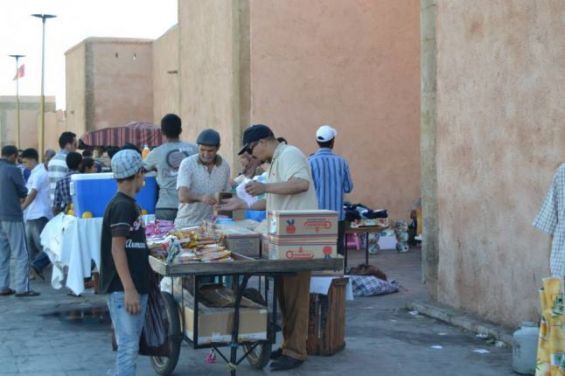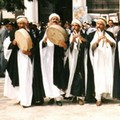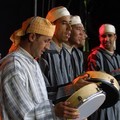The international coronavirus health crisis has brought with it a series of changes. In Morocco, the state of medical emergency, the lockdown and the number of decisions taken to manage the crisis and curb the spread of the virus had a real impact on several aspects.
To media, communication and culture researchers Abderrahim Chalfaouat and Gerda Henkel Post-Doctoral Fellow Giulia Cimini, the Covid-19 crisis has established new authoritarian norms in the North African Kingdom, all while worsening the financial situation of its most vulnerable inhabitants.
In an article, published by Washington-based think tank Carnegie Endowment for International Peace (CEIP), the researchers explain that one of the changes that came with the Covid-19 crisis is related to how politicians in the Kingdom reacted to the situation. While most initial measures were led by King Mohammed VI, «political actors (in Morocco) refrained from taking a leading role».
«They show total support for royal steps, somehow opportunistically, to shun accountability should the King’s policies fail», the researchers indicated, referring to the special fund launched to raise funds for the management of the pandemic, and having the army help health workers fight the virus.
Widening inequalities
Meanwhile, the spread of the virus has widened inequalities in the Kingdom. After implementing a lockdown and a state of health emergency vulnerable workers were left with very limited resources. «Restrictive measures affect the fragile fringes of the population the most», the researchers pointed out, adding that «in the emergency, more vulnerability and starvation are awaiting temporary workers, street vendors, and all those in the informal economy that accounts for more than 20 percent of the GDP».
The situation can be more challenging for vulnerable populations living in «slum-like economic apartment daily workers, for instance, home confinement, social distancing and proper hygiene are luxuries they cannot afford», the same source added.
Having to deal with the coronavirus crisis has also pushed for discourses of «accountability, transparency, and democratization to wane». While official statements by the authorities were filled with «calls to responsibility», «there is a lack of a broader debate on the political actors entitled to provide security, on what ‘security’ means in this time, and for whom», the researchers argued.
In the middle of this, some voices have even welcomed «securitization and police violence», for those who break the lockdown, the same source concluded.
While dealing with the pandemic has given birth to a number of challenges, the upcoming period remains a «crucial» one for Morocco which may encounter «new strides toward the democratic transition».





 chargement...
chargement...













